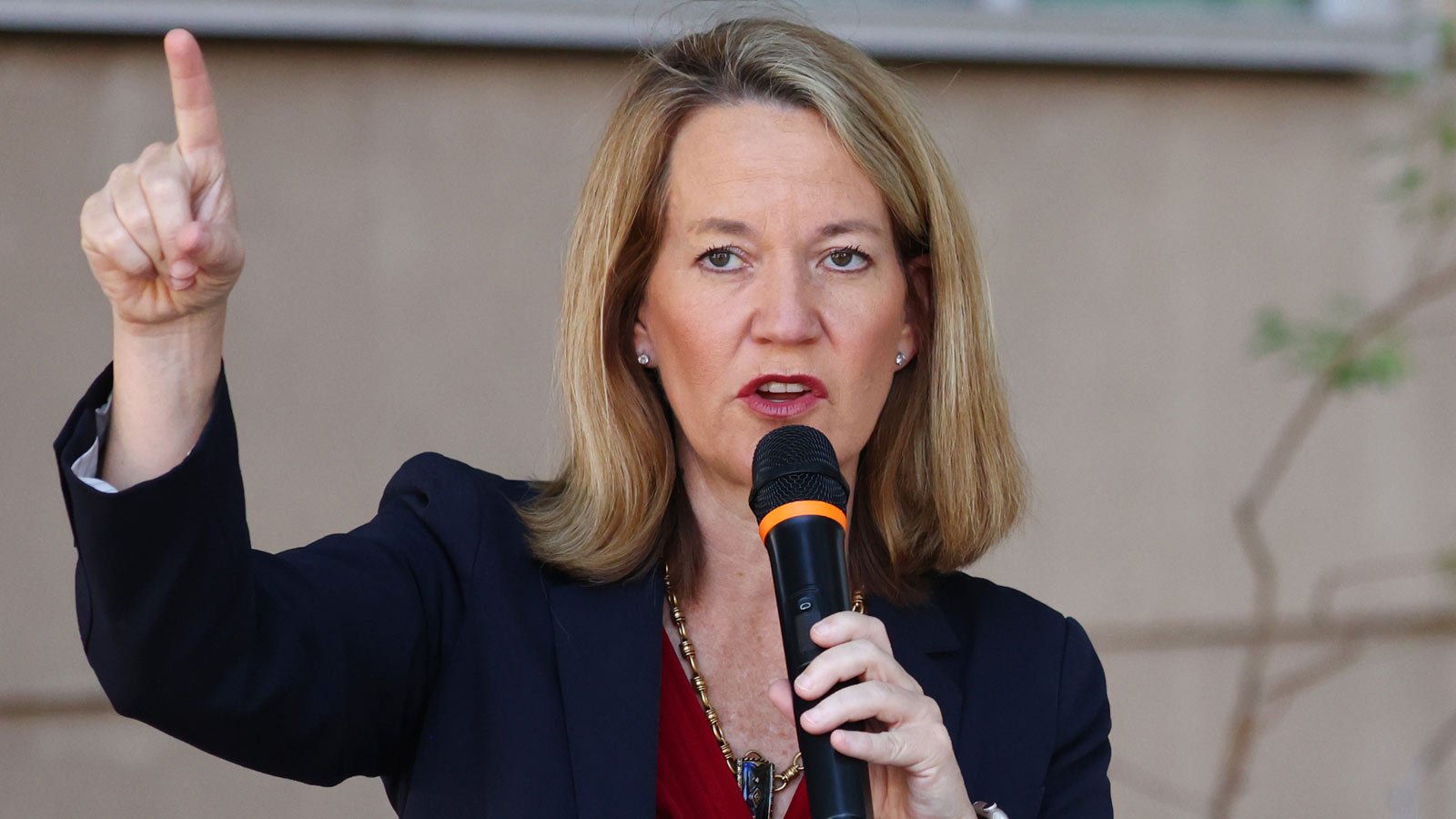In a development raising significant questions about the integrity of Arizona’s 2020 alternate electors case, new reports reveal that a detailed memo from the left-leaning States United Democracy Center (SUDC) may have heavily influenced Attorney General Kris Mayes’s prosecution strategy. This revelation has sparked concerns about the impartiality of the legal process and whether external partisan organizations are shaping state-level legal actions.
The Case Against the 2020 Electors
The case stems from efforts in 2020 by a group of Republican electors to submit an alternate slate of electors for then-President Donald Trump, arguing that the official results in Arizona were disputed. In April 2024, AG Mayes indicted 18 individuals, including notable Trump allies like Rudy Giuliani and Mark Meadows, on charges of conspiracy, fraud, and forgery. The charges allege that the group attempted to overturn the 2020 election by subverting the lawful transfer of power.
While Mayes characterized the indictments as necessary to protect democracy and uphold election integrity, critics have questioned whether the legal actions were motivated by political pressure.
The Role of the States United Democracy Center
Recent reports indicate that in July 2023, the States United Democracy Center—a nonprofit known for its advocacy against election-related misinformation—provided a 50-page memo to AG Mayes’s office. The document detailed potential legal frameworks and specific criminal charges for prosecuting individuals involved in the alternate electors scheme. The charges brought by Mayes’s office mirror many of the suggestions outlined in the memo.
Critics argue that the memo’s influence undermines the independence of the prosecution. By relying on a document crafted by an organization with a partisan history, they contend that Mayes’s office risks being seen as executing a politically motivated legal strategy rather than a neutral pursuit of justice.
Concerns Over Impartiality
The revelation of the SUDC memo has amplified existing concerns among the defendants and conservative commentators about the fairness of the case. Many point out that the nonprofit has deep ties to progressive advocacy networks and has received significant funding from left-leaning donors. This raises questions about whether the indictments are part of a broader effort to suppress dissent and criminalize political opposition.
“This isn’t just about prosecuting a case—it’s about shaping a narrative,” said legal analyst Chris Miller. “When you rely on outside groups with clear political agendas to guide prosecutions, it creates the appearance that the justice system is being weaponized.”
Defendants in the case, including Giuliani, have already signaled that they will raise the memo’s role in pre-trial motions. Their attorneys are expected to argue that the prosecution has been tainted by partisanship, potentially violating their clients’ right to a fair trial.
Legal Experts Weigh In
While consulting external experts is not uncommon for complex cases, legal experts note that the extent to which the SUDC memo aligns with the prosecution’s actions could become a focal point in the proceedings. “There’s nothing inherently wrong with seeking advice or input from external organizations,” said James Parker, a constitutional law scholar. “But when those organizations are overtly partisan, it raises legitimate concerns about the objectivity of the legal process.”
Conservative voices argue that this case illustrates a broader trend of weaponizing legal systems against political opponents. They point to similar prosecutions in other states targeting Trump allies and Republican operatives, suggesting a coordinated effort to discredit dissenting voices.
Broader Implications
The memo’s influence on Arizona’s case highlights the increasing entanglement of politics and the judicial system in the post-2020 election era. For many conservatives, this case exemplifies what they see as a growing imbalance in the application of justice, where individuals aligned with one political ideology are treated differently than those on the other side of the aisle.
Supporters of the prosecution argue that these cases are necessary to hold individuals accountable for actions that they believe undermine democratic norms. They view the alternate electors as part of a broader effort to delegitimize the 2020 election results and disrupt the peaceful transfer of power.
Public Reaction and Next Steps
Public reaction to the memo’s role has been polarized. Progressive groups have praised AG Mayes’s decision to proceed with the indictments, framing the case as a necessary step to safeguard future elections. Conservative commentators, however, have accused the Arizona Attorney General’s office of bowing to external influence and pursuing a politically motivated agenda.
As the case progresses, the extent of the SUDC’s involvement will likely be scrutinized further. Defendants are expected to push for greater transparency regarding the memo’s role in shaping the indictments, potentially delaying the trial and complicating the prosecution’s efforts.
For AG Mayes, the challenge will be to demonstrate that her office’s actions were guided by legal principles rather than political considerations. The outcome of this case could set a precedent for how similar prosecutions are perceived in other states and impact public confidence in the justice system.
Sources
- The Gateway Pundit: Left-Leaning Nonprofit Designed Arizona Electors Case Memo
- Arizona Daily Independent: Nonprofit’s Influence on AG’s Prosecution Sparks Concerns
- AP News: Background on Arizona’s Alternate Electors Indictments
- The Daily Signal: Leftist Memo Guides Arizona’s Election Prosecution
- The Hill: Legal Experts React to Arizona Electors Case Developments

